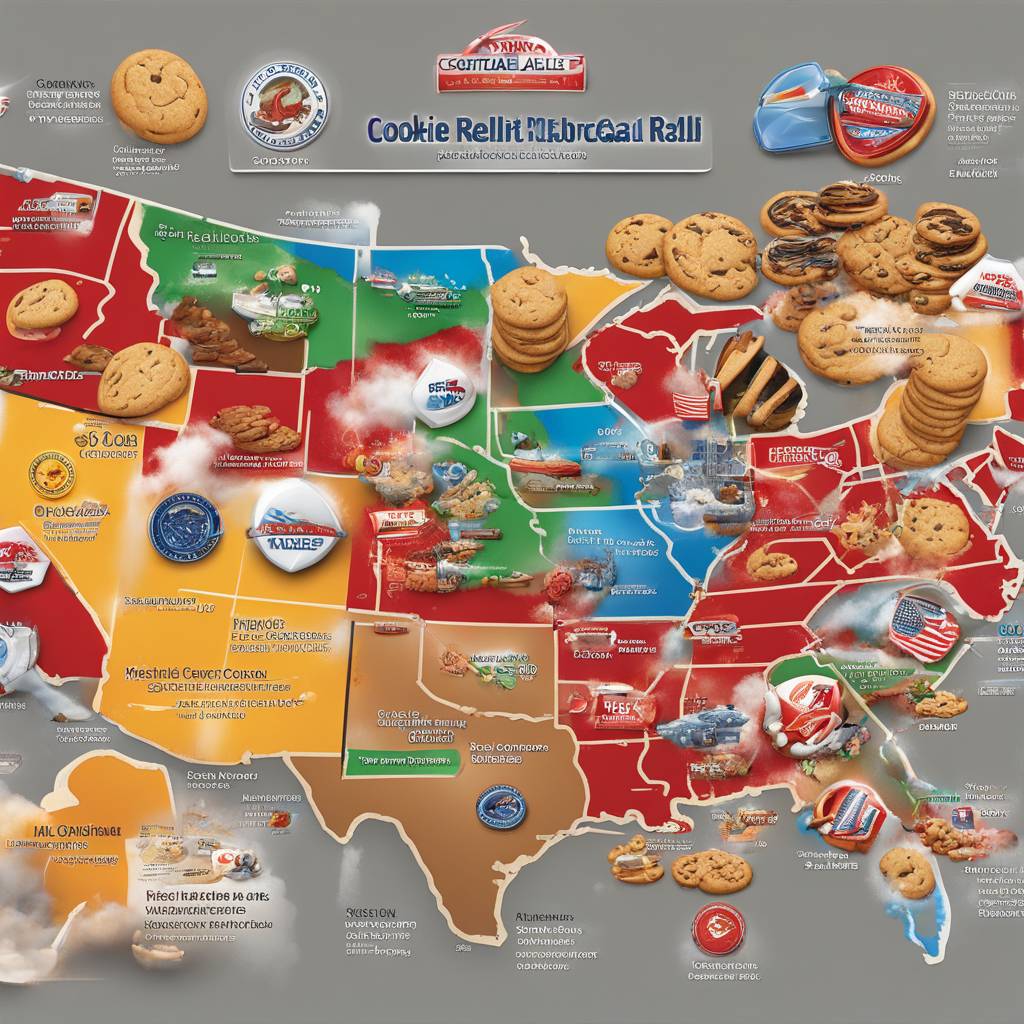The Food and Drug Administration (FDA) issued a warning about potential “life-threatening” allergic reactions following a cookie recall in nine states and the District of Columbia. The recall was for macarons sold by the German discount grocery chain Lidl at its U.S. locations. The voluntary recall was due to undeclared allergens, including wheat, soy, egg, milk, and tree nuts. People with allergies to these ingredients could face serious or life-threatening reactions if they consumed the products. Lidl urged customers to return the products for a full refund and provided a customer care hotline for further inquiries.
The affected packages of macarons had a UPC barcode number of 4056489365365 and were sold in Lidl stores in Delaware, Georgia, Maryland, New Jersey, New York, North Carolina, Pennsylvania, South Carolina, Virginia, and D.C. The issue was discovered internally after the products were delivered to stores, and no illnesses were reported in relation to the recalled macarons. While Lidl had not provided information on when the macarons were offered for sale, customers were advised to return the products immediately to the nearest store without needing a receipt. The risks associated with allergens are serious, as undeclared ingredients have the potential to cause the life-threatening allergic reaction anaphylaxis.
Earlier in the year, a recall was issued for Florentine cookies sold by Stew Leonard’s, a northeastern supermarket chain, after a woman died from eating the cookies that contained undeclared peanuts. The victim, identified as 25-year-old Órla Baxendale, was a dancer from the U.K. who had moved to New York City. The supermarket chain and the cookie supplier, Cookies United, each issued statements seemingly blaming the other for the tragedy. The Connecticut Department of Consumer Protection Commissioner called the incident a “heartbreaking tragedy” and expressed condolences to the affected family. Undeclared allergens in food products can have severe consequences and lead to tragic outcomes, underlining the importance of accurate labeling and safety measures in the food industry.
The recall of macarons by Lidl highlights potential risks associated with food allergies and the importance of proper labeling to protect consumers with allergies. The FDA’s warning emphasizes the need for consumers to pay attention to ingredient labels and recalls to avoid potential allergic reactions. The voluntary recall by Lidl and the prompt action taken to alert customers and provide refunds demonstrate a commitment to food safety and customer well-being. Companies and regulatory agencies must work together to ensure that food products are accurately labeled and that potential allergens are disclosed to prevent adverse reactions and protect public health.
Consumers are urged to be vigilant about checking food labels for potential allergens and to stay informed about recalls to prevent allergic reactions and ensure their safety. The tragic incident with the Florentine cookies serves as a reminder of the severe consequences that can result from undeclared allergens in food products. The swift response from companies like Lidl in issuing recalls and communicating with customers is essential in mitigating risks and protecting public health. The collaboration between regulatory agencies, food companies, and consumers is crucial in creating a safe food environment and preventing potential health hazards associated with food allergies. Promoting awareness and adherence to food safety protocols is essential in reducing the incidence of allergic reactions and safeguarding the well-being of individuals with food allergies.








